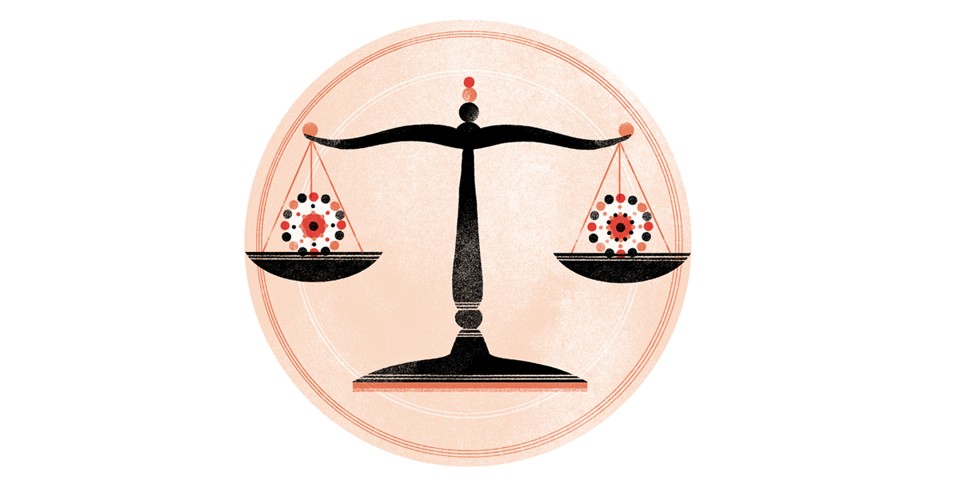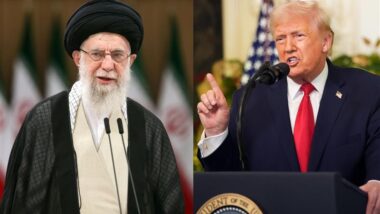
Ouça este conteúdo
Solid "bedrocks" of participatory culture, on the one hand, and the rule of law, with broad protection of individual and social freedoms and guarantees, on the other, are the best foundations of a democracy. When they are present in a particular country, the very interpretation of constitutional norms tends to be made in their light, generating a complex of principles and decisions that reinforce the democratic logic itself.
German doctrine and jurisprudence, especially during the postwar period, and the actions of the United States Supreme Court, have ended up identifying and formulating accurately, from slightly different but substantially convergent formal perspectives, a principle that is well understood to be implicit in any truly democratic order. We refer to the principle of proportionality (according to German terminology) or reasonableness (according to the American tendency).
"Any limitations on the freedoms of citizens must be exceptions and must be strictly justified"
This principle - we will use here the German formulation, more commonly adopted by Brazilian doctrine and jurisprudence - is nothing more than the application of common sense, rational criteria in evaluating an action of the public power and avoiding undue excesses and legalisms. It is based on the vision, on the understanding that any limitations on citizens' freedoms must be exceptions and must be rigorously justified and, therefore, of particular importance in protecting the democratic ethos.
It is on the basis of this principle that it is possible to evaluate more precisely the compatibility with the Constitution of both the Executive's actions and the normative elaboration of the Legislative: is it correct, for example, in regions with high homicide rates, to order the closure of bars during certain hours? Would the law - which did not "catch"- establish the presumption that all Brazilians were, unless expressly stated otherwise, organ donors at the time of their death?
The answers to these and other questions can be reached by analyzing the three "subprinciples" that form the principle of proportionality. The first one is that of adequacy. The question he proposes is simple: as it is conspicuous, it would be inconceivable that state action would not be able to solve what it is purposed to solve - but in practice it is not so desired? It may seem obvious - it would be inconceivable for a state action that is not capable of solving what it proposes to solve - but in practice it is not so much: often the causal relation between the requested action and the intended objective can only be established after much research and analysis. If the proposed measure passes the criterion of adequacy, it will be put to the test by the aspect of necessity: is there no other less restrictive way of achieving the same objective? This question is raised to avoid public power ending up opting for solutions that are sometimes easier, but that in the end create unnecessary restrictions that could be avoided.
"Is it correct, in very violent regions, to order the closure of bars during certain hours?"
Finally, there remains the criterion of proportionality "in the strict sense", which is summarized in the expression "just measure". The question posed is: do the advantages brought about by the measure that is intended to be adopted, overcome any disadvantages that this restriction to some right or freedom causes? Any state action that touches on the sphere of rights and freedoms must pass through these three sketches (and necessarily in this order: adequacy, necessity and proportionality) to be considered legitimate.
If we return to the questions asked at the beginning of this text, we can now find the answers. In the case of bars, for example, the measure may at first seem absurd and excessive, restricting both the freedom to operate and the freedom to come and go. Usually it is, but it can be circumstantial and exceptionally legitimate in a certain locality. In fact, it may be that in a given region most of the homicides occur due to excessive drinking in bars and fights that follow, and that the closure of establishments has a really significant reducing effect (examples of this already exist).The criterion of adequacy settled, we come to that of necessity: are there no less restrictive means of achieving the same result? Strengthening policing near bars, for example, would be a possibility, but it may happen that in some particular case it is impossible because of the logistics and resources required. Finally, the last criterion, that of proportionality in the strictest sense, is reached: if, in fact, the closure of bars saves lives, the freedom to operate business and the freedom of movement gives away easily to the importance of life.
In the case of "compulsory" donation of organs, where the goal is to guarantee the survival of many citizens in need of transplants, the proposal could sound humane and reasonable, and was defended by many enthusiasts, it would not pass - not by the threefold Principle of proportionality. Although it met the last criterion - which is why the initial inclination of many was in favor of the law - because the life of a person justifies a restriction of freedom, it is not so significant (except in special cases, for reasons of religious belief). It also offended the second criterion, that of necessity, because it was clear that there would be a large number of other less restrictive measures that would encourage more people to donate their organs when they died: campaigns to decide on one's own body after death, the measure already yielded to the first criterion, that of adequacy, since the mere legal determination that all would be donors until they formally declared otherwise would not solve the central problem of the lack of organs, which is a problem of management and logistics of awareness and information, with extensive work in schools together with hospitals and doctors; and a significant improvement in management, with integration of systems and data on cases of need for transplantation and people willing to donate.
The principle of proportionality, therefore, is decisive in the correct interpretation of the Constitution and constitutes an authentic safeguard of the individual rights against undue actions of the public power that violate its freedom.



